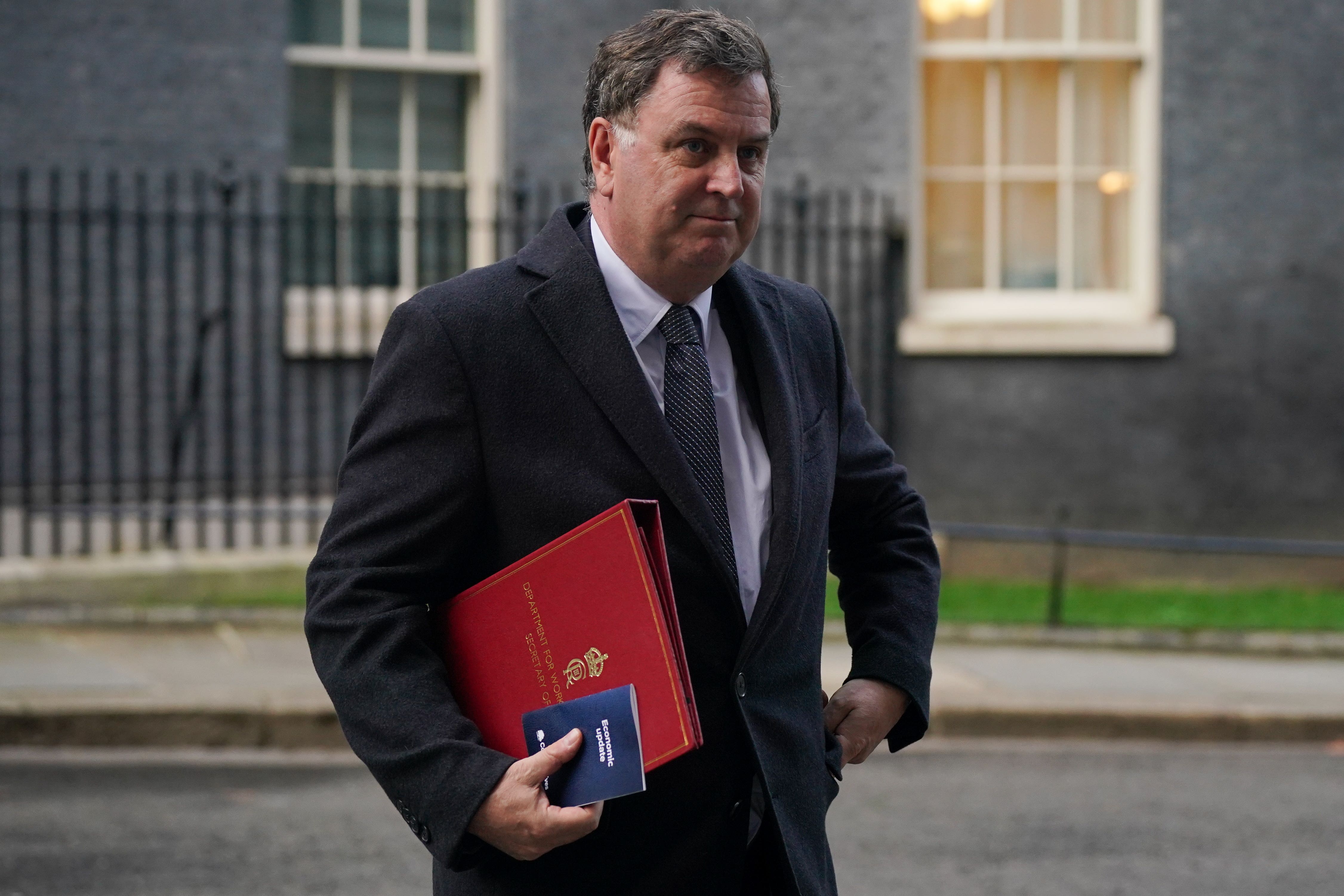Downing Street acknowledges ‘challenges’ after minister’s mental health comments
Number 10 did not echo Mel Stride’s claims that the UK’s approach to mental health may have ‘gone too far’.

Downing Street has declined to repeat claims by a Cabinet minister that the UK’s approach to mental health was in danger of having “gone too far”.
Mel Stride, the Work and Pensions Secretary, was criticised on Thursday morning for an interview with The Daily Telegraph in which he said there was “a real risk” that “the normal ups and downs of human life” were being labelled as medical conditions that then held people back from working.
He said: “While I’m grateful for today’s much more open approach to mental health, there is a danger that this has gone too far.”
It risks belittling people’s struggles and delaying help-seeking until it is too late
Dr Lade Smith, president of the Royal College of Psychiatrists, said it was “disappointing” to see the minister “diminish and misrepresent people with mental illness”.
She said: “People are not pretending to be sick, they really are sick.
“There has been a significant increase in poverty, deprivation, housing insecurity and homelessness, loneliness and isolation over the last 15 years and these issues are all associated with depression and anxiety.
“It is therefore not surprising that we have seen a dramatic rise in people struggling with mental illness, including those who are at risk of self-harm and suicide.”
Andy Bell, chief executive of the charity Centre for Mental Health, said Mr Stride’s comments were “not based on robust evidence” and ignored “compelling evidence of rising levels of distress”.
He added: “It risks belittling people’s struggles and delaying help-seeking until it is too late.”
Since 2020, the number of people out of work due to long-term sickness has risen significantly, reaching 2.7 million people in January 2024.
A large proportion of those report suffering from depression, bad nerves or anxiety, although most of those report these as secondary conditions rather than the main one keeping them out of work.
On Thursday, the Prime Minister’s official spokesman did not repeat Mr Stride’s comments, but said Rishi Sunak agreed with him on “the challenges that we are facing with tackling long-term sickness-related inactivity in the workforce”.
He said: “It is clear that long-term sickness-related inactivity and mental health-related inactivity have been rising since the pandemic.
“We’ve made some progress in bringing that inactivity down and we have reduced inactivity by 43,000 since the pandemic peak and our inactivity rate is now lower than the average in the G7, the EU and the OECD, but it is clear that there is more work to do and our £2.5 billion back to work plan seeks to tackle the barriers people are facing in returning to the labour market, including those with mental health conditions.”
He added that there were “a range of factors” that had contributed to rising rates of mental health problems since the pandemic, and said it was “welcome that as a society we are also more comfortable discussing mental health” but there was a need to “tackle the underlying issues” causing increased mental health-related inactivity.
Dame Andrea Leadsom, a health minister, told LBC Mr Stride was making “a really important point” but “I wouldn’t frame it in exactly the same terms”.
She said: “But what I do know is that it’s absolutely the case that often getting a job, being in the workplace, having the kind of self-respect and confidence that bringing a pay packet gives you, can actually be incredibly good for mental health.
“And Mel is running a big, busy department that is really focused as part of the Government’s programme on supporting people, whatever their physical or indeed mental health problems are, back into the workplace.”
Bookmark popover
Removed from bookmarks